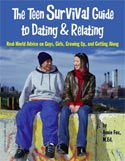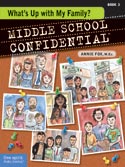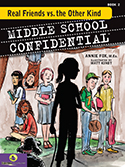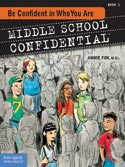Bullying:
“I think I've made my daughter into one of those mean girls.”
Hey Terra,
Having just read your "Mean Girls" article, I had to write. At times my 13-year-old daughter is one of those mean girls. She's in the in-group and is invited to everything. She also can be critical of others. I blame my husband and myself. I spent 30 minutes at a party last night trying not to criticize other guests. "Look what he's wearing." "She is SO annoying." I sound just like a mean girl.I am trying to be a better role model, but I fear the damage is done. At this point we are trying for, "You don't have to spend time with everyone, but you may not be mean and critical." I have come to see my parents and siblings as very critical as well. When my mother feels any discomfort, she finds fault with the person involved. I also feel that the school has done everyone a disservice by identifying her group as "the popular girls," and then telling them how they should perform in that role. What suggestions would you make for mean girls parents and teachers.
Thanks,
Corrine
Dear Corrine,
I so appreciate your honesty and your self-awareness of your own critical behavior toward other people. I understand what you're saying about feelings of discomfort leading to finding fault with others. Very perceptive observation. In that case, it would be a defense mechanism. For example, suppose I'm feeling uncomfortable in a social situation for whatever reason. Rather than admit that to myself I notice someone across the room and poke fun at him/her to my companion. In that moment I chose to put down someone I may well create a "bond" with the person beside me and thus feel a bit less insecure... It's the old "pecking order" at work.
When kids feel that they are higher up in the pecking order they believe that putting down "lower status" kids is part of their entitlement as higher-ups. They rarely take the point of view of the kids they've targeted. And that's the problem. If "mean" kids could experience what it's like to be on the receiving end of what they're dishing out, they would understand how much it hurts. They'd also understand that they aren't naturally entitled to lash out at others (either overtly with insults, put downs, etc., or covertly with shunning or other exclusionary behavior).
As a parent, you need to ask yourself, "What do I want to be teaching my daughter about how to treat other people?" If you sincerely want her to be an open-minded and open-hearted individual who is compassionate and empathetic, then what are the day-to-day lessons you provide for her? Those "lessons" might come in the form of conversations about teasing, popularity, etc. They might come in the form of "teachable moments" while watching a film together on the subject ("Mean Girls" or "High School Musical" are films I'd recommend). Those lessons also come in the form of "silent curriculum", i.e., your modeling the kind of behavior your want her to emulate.
Here's an article I wrote about this topic.
I hope this helps.In friendship,
Annie















